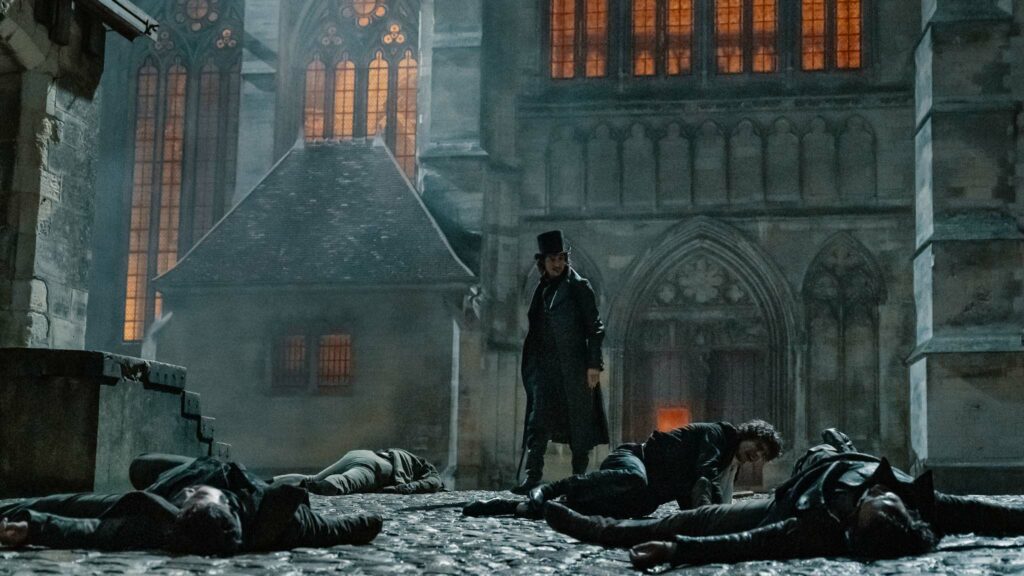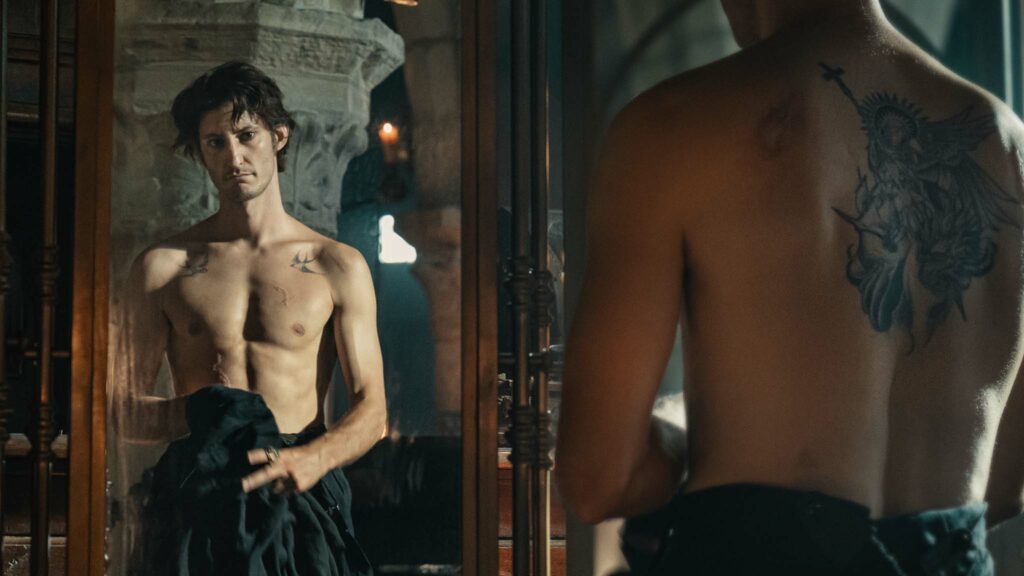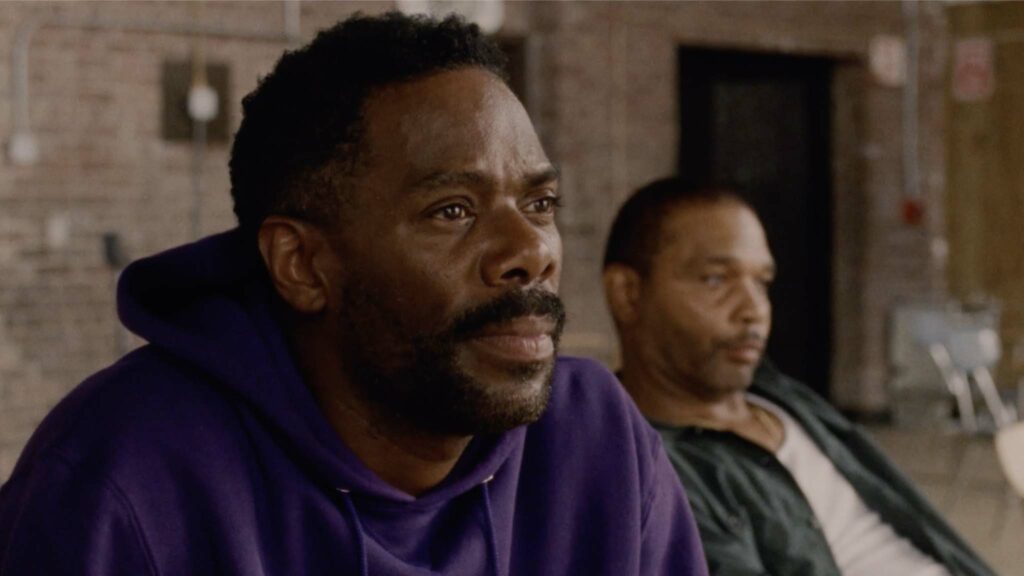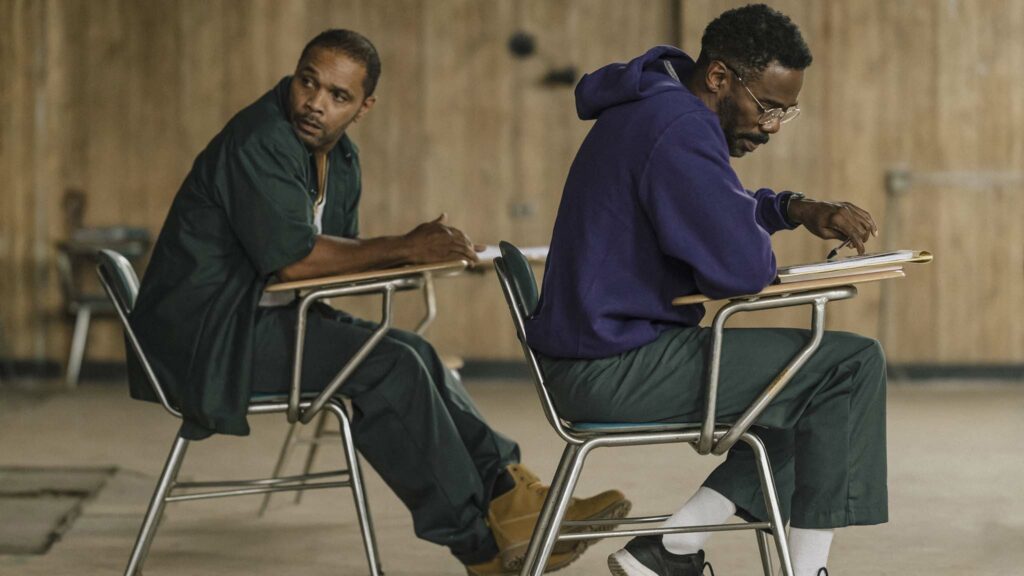Action
The Count Of Monte Cristo (12A)
Review: Sometimes, revenge is the best form of success. For the outrageously wronged hero of The Count Of Monte Cristo, an unquenchable desire to rip out the hearts of viperous conspirators paves a one-way path to self-annihilation. Galloping onto the big screen after yesteryear’s muscular double whammy of The Three Musketeers: D’Artagnan and The Three Musketeers: Milady, writer-directors Matthieu Delaporte and Alexandre de La Patelliere‘s handsome period drama is a thrilling distillation of Alexandre Dumas’s mid-19th century adventure novel.
Their script elegantly condenses the tangled plot into a soupcon under three hours and sacrifices none of the emotional impact. Sympathy is firmly tethered to young Edmond Dantes as he seeks out the three men who cruelly condemned him to serve time for a crime he did not commit. The character’s transformation into the eponymous nobleman is accomplished through Mission: Impossible-style disguises, which render him unrecognisable to former allies.
Delaporte and de La Patelliere demonstrate remarkable stamina to sustain dramatic momentum, emboldened by a compelling lead performance from Pierre Niney as the escaped convict turned debonair avenging angel. Nicolas Bolduc’s lustrous cinematography, Stephane Taillasson’s sweeping set design and Thierry Delettre’s ravishing costumes repeatedly seduce hungry eyes. Bon appetit.
Unerringly honest and decent merchant ship first mate Edmond Dantes (Niney) is promoted to captain above envious rival Danglars (Patrick Mille) after he rescues a drowning woman. The new position elevates Edmond’s social standing and finally allows him to marry sweetheart Mercedes Herrera (Anais Demoustier). Alas, Danglars makes false allegations against Edmond and public prosecutor Gerard de Villefort (Laurent Lafitte) persuades Mercedes’ cousin Fernand de Morcef (Bastien Bouillon), who covets her, to sign a declaration confirming Edmond’s treason. “He is not worth dragging your family name through the mud,” sneers de Villefort.
Arrested at the altar on his wedding day, Edmond serves 14 years in the island prison of Chateau d’If. He befriends neighbouring inmate Abbe Faria (Pierfrancesco Favino), who shares the location of his family’s secret fortune so Edmond might start anew following their planned escape. “Will you do good or will you fill your heart with hate?” Abbe Faria tenderly enquires. The wronged man chooses revenge and in the guise of an enigmatic Count, he ruthlessly targets everyone who betrayed him, aided by willing accomplices Andrea (Julien De Saint Jean) and Haydee (Anamaria Vartolomei).
The Count Of Monte Cristo builds to a rousing, inescapably tragic yet hopeful conclusion with panache, punctuated by energetically staged sequences of seafaring heroism and swordplay. Niney is magnetic, catalysing powerful and contrasting screen chemistry with co-stars including Demoustier’s swooning bride-to-be and Bouillon’s two-faced traitor. Composer Jerome Rebotier’s propulsive original score enforces the illusion that the necessarily lengthy running time feels closer to two hours than three. That creative deception is a true sign of success.
Find The Count Of Monte Cristo in the cinemas
Drama
Sing Sing (15)
Review: Art professes to imitate life but uncomfortable truths are often obscured beneath a thick veneer of creative licence. The pain and tears feel real in director Greg Kwedar’s quietly powerful drama. Inspired by a magazine article, Sing Sing casts professional actors Colman Domingo, Paul Raci and Sean San Jose alongside former real-life prison inmates to champion the transformative power of the Rehabilitation Through The Arts programme (RTA), which has operated since 1996 at the titular maximum-security correctional facility for men. Kwedar’s script, co-written by Clint Bentley, reenacts the making of the RTA’s 2005 production Breakin’ The Mummy’s Code, a madcap musical revue that melds Peter Pan’s Captain Hook, rampaging gladiators, ancient Egypt, Freddy Krueger from Nightmare On Elm Street and a soliloquy from Hamlet.
The production was hastily conceived by RTA volunteer Brent Buell (“147 pages in one weekend?!” jokes one inmate in Kwedar’s film) and roaming handheld cameras create the illusion of a fly-on-the-wall documentary behind bars. Domingo’s powerhouse central performance as a novelist and playwright convicted of a crime he did not commit is wondrous and we feel his character’s anguish when life deals a cruel, dizzying blow. Gentle comedy serves time alongside the soul-searching and Domingo catalyses molten screen chemistry with co-star Clarence Maclin, who starred in the original version of Breakin’ The Mummy’s Code.
John “Divine G” Whitfield (Domingo) is a beacon of optimism for other inmates in Block B at Sing Sing. He diligently prepares evidence of his innocence for an upcoming clemency hearing while completing the fifth draft of a long-gestated stage work. His best friend behind bars, Mike Mike (San Jose), inhabits the neighbouring cell and the two men tease each other about the past like when G reminisces about studying at New York High School of Performing Arts, immortalised in the 1980 film Fame. “The Irene Cara thing?” smiles Mike Mike. “G, you was Leroy!”
G and Mike Mike are long-standing members of the RTA and they persuade other members of the troupe to allow drug dealer Clarence “Divine Eye” Maclin (playing himself) to audition for a zany comedy about “an Egyptian prince who travels through time to find his mummy”. Divine Eye is initially resistant to lowering his emotional guard in front of visiting theatre director Brent Buell (Raci) since survival in the yard requires him to project an image of bullying, brutish masculinity. Through the RTA, he nurtures strong fraternal bonds and slowly repairs his crumbling self-worth.
Sing Sing is a rousing celebration of the dauntless human spirit, shot on grainy 16mm film in 19 days in decommissioned correctional facilities. Brotherhood and compassion flourish in the darkest places of Kwedar’s unassuming but crowd-pleasing film, galvanised by naturalistic performances from the uniformly excellent ensemble. Art defiantly celebrates life.
Find Sing Sing in the cinemas









